Dear Friends and Neighbors,
This year, my legislative priorities continue to reflect the values and needs of our district, focusing on affordability, public safety, education, and supporting our local economy.
One of my key proposals is Senate Bill 5097, which aims to protect fairness in girls’ sports by requiring the Washington Interscholastic Activities Association (WIAA) to adopt rules that ensure fair competition. This bill is about creating a level playing field and preserving opportunities for young women to compete and excel.
In addition, I am advocating for tax relief for small wineries through Senate Bill 5054. Wineries are a vital part of our local economy, supporting jobs, tourism, and agricultural innovation. This legislation seeks to reduce the financial burden on small wineries, enabling them to thrive and continue contributing to the vibrancy of our region.
Public safety also remains a top priority. I support policies that empower law enforcement, address rising crime rates, and ensure the safety of our communities. This includes advocating for the necessary tools and training for officers and revisiting policies that have hindered effective policing.
Education is another critical focus. I am committed to ensuring that our schools are adequately funded and that every student has access to a high-quality education. This includes supporting career and technical education programs that prepare students for the workforce and expanding opportunities for rural schools to address unique challenges.
Finally, addressing the state’s budget shortfall responsibly is a priority. While balancing the budget, we must protect essential services, avoid undue burdens on taxpayers, and invest in areas that will yield long-term benefits for Washingtonians. I will work to ensure that every dollar spent is used effectively to improve lives and strengthen our communities.
These priorities reflect my commitment to serving you and ensuring that our state government works for everyone. By focusing on these key areas, we can make meaningful progress toward a safer, more prosperous future for Washington.
Warm regards,

Sen. Judy Warnick
 Advocating for Foster Youth
Advocating for Foster Youth
Our foster youth deserve unwavering support as they transition into adulthood. It has come to light that Washington state has been redirecting federal benefits intended for foster children to cover state expenses. This practice, while legal, raises ethical concerns about the financial stability of these vulnerable individuals. I am committed to ending this policy to ensure that foster youth receive the full benefits they are entitled to, providing them with a stronger foundation as they move forward in life. One thing about foster youth — they’re in the foster system not because they’re bad kids or because of anything they’ve done. If we can tell the story and make our point, hopefully, it’ll get done.
 Promoting Sustainable Economic Growth
Promoting Sustainable Economic Growth
In the realm of economic development, I am dedicated to implementing smart policies that attract and manage data centers within our state. Data centers are pivotal in our digital economy, offering significant job opportunities and contributing to local revenues. By establishing clear guidelines and incentives, we can ensure that these facilities operate efficiently while aligning with our environmental and community standards. This balanced approach will help position Washington as a leader in technology and sustainability.
I am eager to collaborate with my colleagues and constituents to address these and other critical issues in the upcoming session. Your input and support are invaluable as we work together to build a brighter future for all Washingtonians.
*Photo courtesy of Microsoft
 Celebrating Community Leadership: Remembering Penny Archer
Celebrating Community Leadership: Remembering Penny Archer
We are fortunate to have individuals in our community who go above and beyond to serve others. One such person is Penny Archer, who worked tirelessly supporting the Moses Lake Food Bank. Her dedication to addressing food insecurity has made an incredible difference in the lives of countless families in our region. I am saddened to learn of her passing and my heart goes out to her loved ones.
Penny’s commitment helped transform the food bank into a vital resource, ensuring that no one in our community goes hungry. I have had the privilege of working to secure funding in years past to support the food bank’s essential programs through the state’s capital budget. This partnership highlights how state resources, combined with the passion and hard work of local leaders like Penny, can create meaningful change.
As we move into 2025, I remain committed to supporting efforts that uplift our community and recognize the invaluable contributions of individuals like Penny and the legacy she left us. Together, we can continue to build a stronger, more compassionate Washington.
*Penny Archer featured on the left. Photo courtesy of Moses Lake Food Bank.









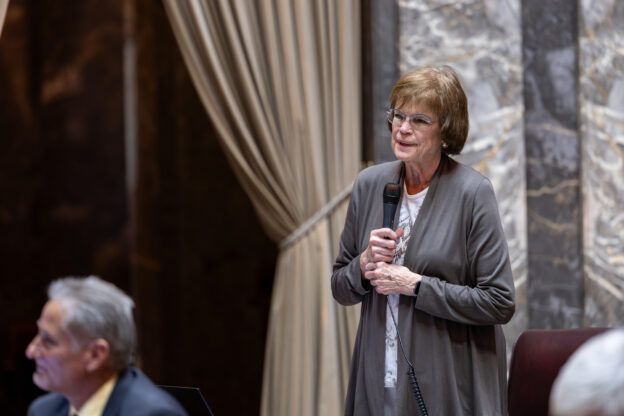
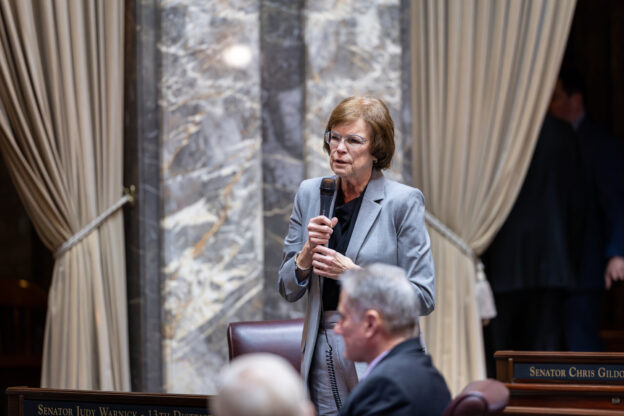
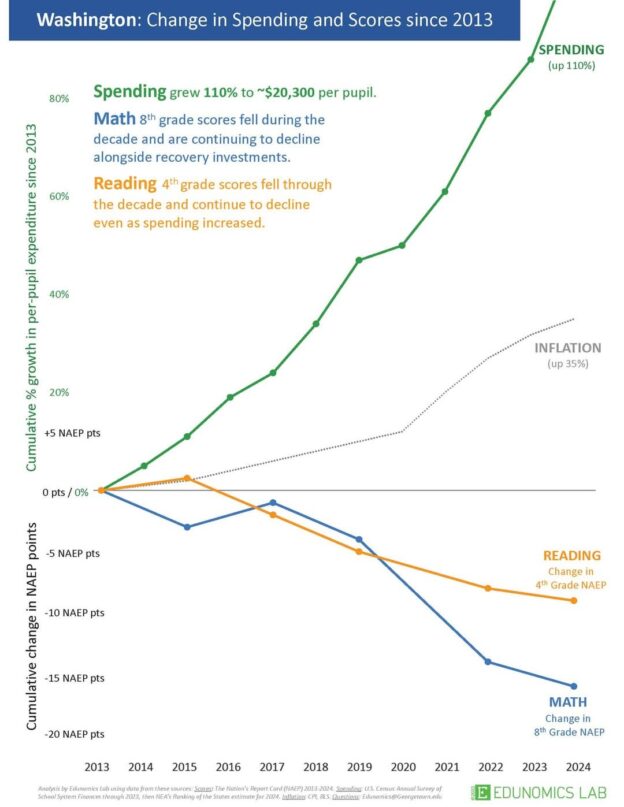
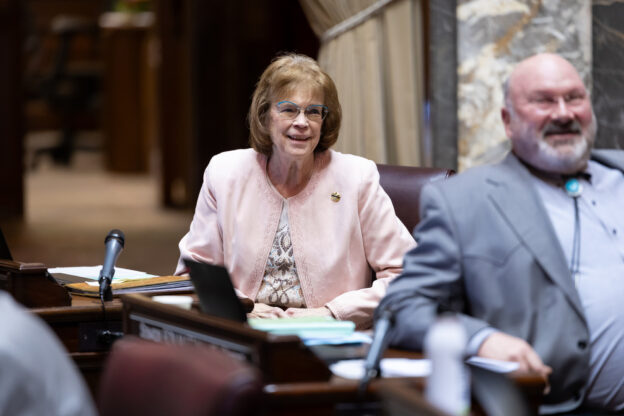

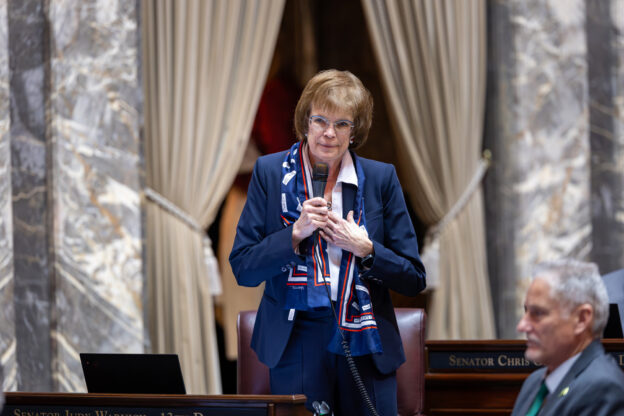
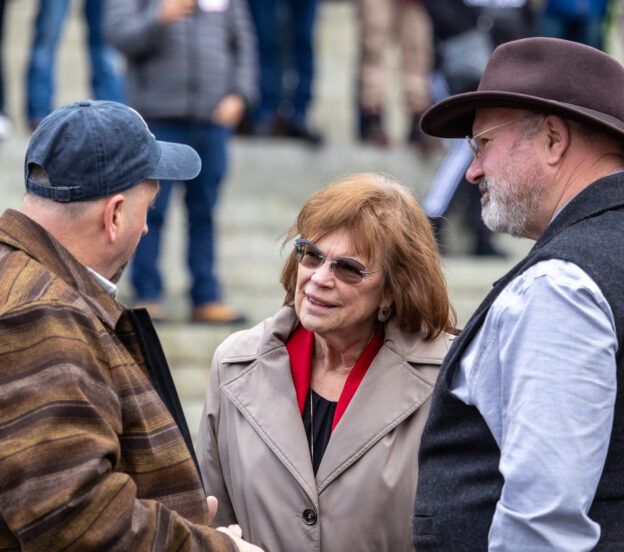

 Advocating for Foster Youth
Advocating for Foster Youth Promoting Sustainable Economic Growth
Promoting Sustainable Economic Growth Celebrating Community Leadership: Remembering Penny Archer
Celebrating Community Leadership: Remembering Penny Archer
 Greetings Friends and Neighbors,
Greetings Friends and Neighbors, Three Initiatives Remain
Three Initiatives Remain Legislature approves my bill expanding public-private partnerships on state-managed lands
Legislature approves my bill expanding public-private partnerships on state-managed lands Investing in our community
Investing in our community